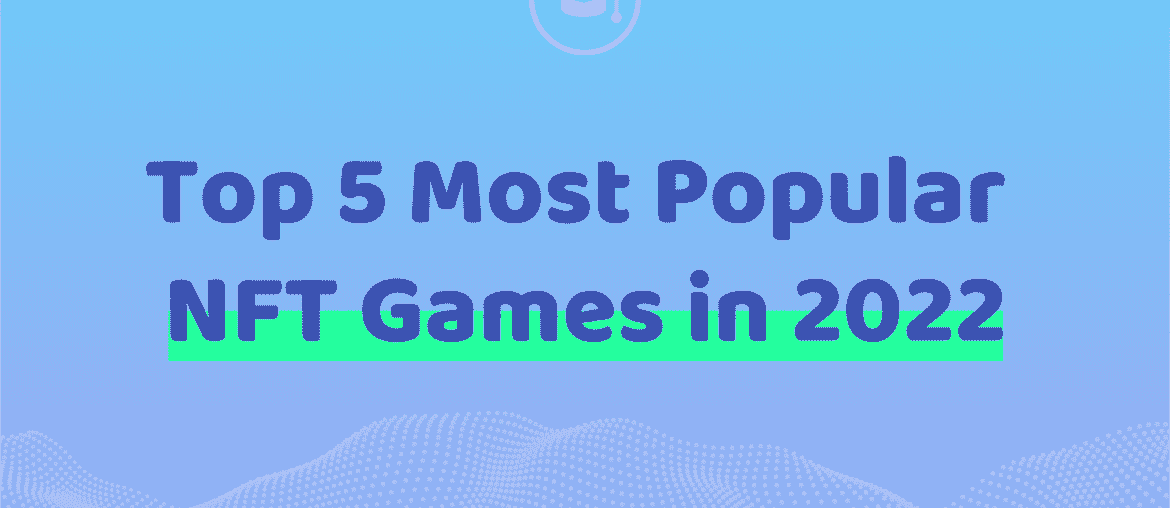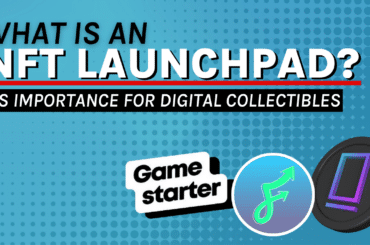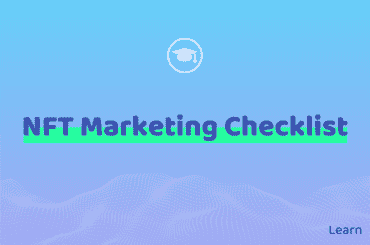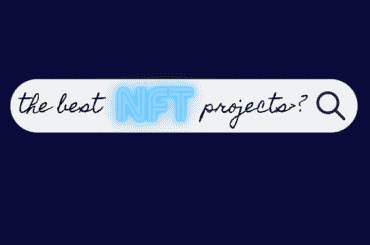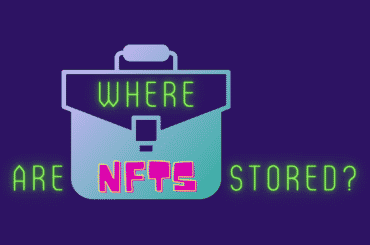The video game industry has become increasingly popular over the last few years. It is now one of the most lucrative industries in the world and with the introduction of the blockchain, there are a lot of different ways to use it in the gaming industry expanding the hype of game features.
Many companies have already started using this technology to improve the way they do business. One of the most successful assets in the gaming industry is NFTs.
NFTs have become a top form of in-game currency for many games, and some companies have started using NFTs and NFT games to promote their brand.
NFT games are a form of gaming experience where the game incorporates blockchain technology by way of NFTs. By rewarding players through the play-to-earn model, blockchain games allow users to engage with and play through in-game currencies.
NFT tokens allow gamers to have true ownership with options to swap, create, and implement NFTs within a game, while game developers create smart contracts that make up the rules for the NFTs used.
With the crypto space booming, it’s time to put your crypto and fiat to work by diving into the world of NFT games.
Table of Contents
NFTs: In-Game Assets
Before we can discuss NFTs in gaming, we have to expound on what an NFT actual is.
Non-fungible tokens (NFTs) are unique digital assets that can’t be replicated or duplicated. This is why they are referred to as “non-fungible” or “non-transferable.”
Unlike other digital assets, NFTs are considered unique, so they can be represented in a game using unique identifiers. This makes it possible to track and verify ownership of these assets. In other words, they’re unique assets that are created and assigned unique identifiers.
NFTs also make it possible to trade them in a digital marketplace, similar to how you might trade items on an online auction site. NFTs are often referred to as digital collectibles.
How Are NFTs Used in Games?
NFTs can be used in a variety of ways in gaming. Some NFT games allow you to purchase items using crypto or in-game currency, while others require you to purchase or stake NFTs to play.
The gaming industry is a growing market, but it isn’t very fair to the players. It’s structured in a way that profits game developers while players have to spend real money to unlock access to assets and gameplay configurations.
When combined with non-fungible tokens (NFTs), blockchain technology has the potential to drive mainstream adoption and create a more equitable value model where players keep all of their profit.
The Benefits of Gaming NFTs
NFTs in games are all about creating a real economy around in-game items, giving players the ability to sell and trade those goods on third-party marketplaces.
- Ownership: NFTs grant players true ownership of in-game items, enabling them to save game assets over time and sell them on the market for any cryptocurrency or fiat currency. While one-time, non-transferrable investments are locked in a single gaming world, NFTs enable gamers to move items between games and use them in any environment they choose.
- Provable Scarcity: As a digital asset, the authenticity and rarity of non-fungible tokens (NFTs) can be verified through their blockchain network. NFTs are unique assets that are more difficult to counterfeit than standard cryptocurrencies. Not only do NFTs represent ownership, but they add a level of collectability and uniqueness to each token that serves to increase their value over time.
- Interoperability: Blockchain gaming can ultimately co-exist with more established titles, as each project is independent of one another. In the same way that many mobile games can be played together on a single game device, blockchain games can be played on a single game network.
Ultimately, the blockchain opens up a whole new realm of possibilities for the world of gaming. - Immutability: One of the major benefits of blockchain-based non-fungible tokens is that they are not connected or dependent on a particular gaming platform. This is beneficial because if the gaming company goes out of business, you can still trade your tokens in other NFT games that plug into the existing blockchain protocol. Non-fungible tokens also have an advantage over other types of in-game purchases, as duplicating or tampering with them is virtually impossible.
What is an NFT Game?
By comparison, a digital asset is a representation of something that is not physical. In the case of an NFT game, it is the representation of a virtual item.
NFT games are played by transferring the ownership rights over the assets from one player to another. The ownership rights can be transferred using either an in-game or an out-of-game mechanism. In an in-game mechanism, the ownership rights are transferred utilizing the blockchain which translates as in-game transactions.
With more and more NFT games popping up, it can be hard to decide which are the best NFT games to play. There are many different game options available, from digital collectibles to live, multiplayer video games, play-to-earn games, and even an outer space game and adventure game.
NFT Games Are Becoming More Popular
The market for NFT games is growing quickly. For example, in the first quarter of 2018, NFT-based games generated $2.5 million in revenue, a six-fold increase from the same quarter last year.
There are two main reasons for this rapid growth. The first is that NFT games are a great way to get your audience interested in crypto, and the second is that they’re also a great way to get your audience to understand blockchain technology.
Blockchain technology is an increasingly important part of our society. As a result, it’s only natural that people are starting to get more interested in what it is and how it works.
How Do NFT Games Work?
NFT games are a new idea that combines video games with finance. In these games, users can earn money as they play. There are several ways in which NFTs can be earned: gamers can either invest in them by buying them or by playing certain pay-to-earn models where rewards include tokens. But instead of cash, these tokens are assets on the blockchain, and they have the potential to appreciate.
To play most NFT games, you’ll need a wallet that supports NFTs. Once you get it installed on your computer or mobile device, you’ll need to fund it with some cryptocurrency. Next, you’ll need to find an NFT game platform that suits your interest.
Make Money Playing NFT Games
Earning money through gaming is not a new concept, but play-to-earn takes it to the next level by giving gamers unprecedented control over how they earn their money.
In-game cryptocurrency rewards and even real-world NFTs are up for grabs. Whether you decide to sell or earn, blockchain makes this process as simple as playing a video game.
Games with a play-to-earn model are a new type of game that provide players with opportunities to earn in-game rewards, such as tokens, while they play. This can be through in-game purchases or completing objectives.
The NFT Games Industry
There are many collectible games on the market based on the play-to-earn model. However, some game providers are focusing on trading card games. Parallel, which raised $50 million in October 2021, is one of them. FIFA Ultimate Team NFT game has been making waves across the gaming industry by challenging traditional video games. Perhaps one of the most innovative projects in digital gaming right now, it could earn continuous revenue streams for businesses and gaming companies in the future.
Content creators can potentially monetize their work by selling it to other gamers. For example, if you create a piece of artwork you could sell it as in-game items to people who want to purchase a digital painting or trading card.
NFT Game Development
NFTs, or non-fungible tokens, are digital assets that exist inside games on the blockchain. Like conventional games, players can earn these NFTs by achieving milestones and such. However, in NFT games, the player owns these items and can trade them with other players or exchange them for cryptocurrency.
In conventional games, items of value are owned by the game owner. In NFT games, though, the player owns their progress and the NFTs they earn inside the game. When owners of these items become more rare and valuable, their owners can trade them for cryptocurrency with other players.
What’s in for the NFT Game Owner?
Game owners invest a lot of their money into purchased platforms and then spend even more on marketing but there is a vast potential for NFT gaming ownership.
With their ability to redistribute power, blockchain and cryptocurrency have the potential to destroy the status quo. Gaming is seen as a new way to market services and products effectively — and blockchain-based games are poised to take venture capital funds by storm.
Blockchain has huge potential to change gaming. People are fascinated by its potential to redistribute power in favor of gamers while maintaining the security and integrity of interactions.
In an economy that is daily witnessing exponential growth in Blockchain and cryptocurrency, NFT gaming offers the following benefits to the owners:
Potential to Attract Venture Capital:
Venture capital firms, entrepreneurs, and tech experts recognize the potential of blockchain and crypto markets. Some have gone so far as to describe blockchain as a future goldmine — an opportunity to earn big through a revolutionary new method of marketing services and products.
A blockchain-based in-game marketplace could be just the ticket for brands who are looking for innovative digital solutions that can help them attract capital from venture capitalists.
Smart investors are aware of the growing popularity of blockchain and cryptocurrency markets. People can advertise their startups, their products, and even themselves. Gamers want to get involved in the new trend to attract venture capitalists, who are looking to invest in blockchain-based gaming solutions.
Scaling up Existing Gaming Solutions:
NFT game development can help existing gaming products offer more attractive options to their users. Adding new features, creating alternative experiences, and implementing new monetization models will attract more users to your product. Ultimately, a game is rated by the number of people playing it regularly. NFT game development can help existing products in delivering more attractive options to its players.
Earning From Transaction Fees:
When an NFT gaming token is traded over a gaming platform, the owner can make transaction fees in two ways. First, it can charge a transaction fee from the intermediary wallet or exchange, as most other games do. Second, it can charge a certain fee from the owner itself if they want to sell or trade it with others. The transfer amount will also depend on this option.
Mergers and Takeovers:
In the gaming industry, new technology such as blockchain-based game ownership may be disruptive to the existing players in the industry. If a platform tries to use blockchain to create decentralized ownership of games, other players may try to either buy the company or merge with it. Thus, even a small start-up can take an owner to the top.
Earning From App Store or Play Store:
Games like Clash Royale, Minecraft, and Pokémon GO are examples of how game developers can make money through in-app purchases. These games are extremely popular and offer in-app purchases that range from $0.99 to $99.99.
By offering in-app purchases on games that have been downloaded by millions of users around the world, developers make a lot of money every year.
What’s in it For a Player?
As the crypto community expands, more and more business leaders are turning to blockchain. During a brutal economic downturn, gamers turned to NFTs to support themselves and their families — not only did they earn money from playing NFT games, but also from selling unique digital assets.
Ownership of In-Game Assets:
With NFT gaming, the playing field has leveled — gamers are no longer at the mercy of the developers. With total control over their assets, gamers can earn cryptocurrency instead of merely spending it on digital goods. Physical ownership means more incentive for playing blockchain games and may even become a regular source of income.
Highly Secure Environment:
Gaming is one of the biggest applications for blockchain technology, with its ability to handle massive amounts of transactions and securely store data. Gaming platforms built on blockchain can provide gamers with a sense of security — they’re always in control of their data and assets. What’s more, with no scalability issues or downtime, blockchain-built dApps provide a smooth gaming experience.
Transparency and Provable Rarity:
NFTs work on the principle that if it’s digital, it should be unique. Although this is a challenging concept to grasp immediately, it’s simply the idea that everything online should be one-of-a-kind. Blockchain helps users by providing transparency in their transactions and by serving as a tool for proving the uniqueness of assets — ensuring that users get high returns for their scarce items.
NFTs have taken the gaming industry by storm, with many gamers joining “Play-to-Earn” models and earning cryptocurrency for the fun and entertainment they provide to the entire community. Where NFT game development once only had a niche audience, it is now gaining traction throughout the gaming community.
Top NFT Games
Gaming is bigger than ever and with the advent of e-sports, the gaming industry has increased even further. With new genres, sub-genres, and categories emerging each year, it’s no wonder that there are many types of games available to players all over the world.
While there is a myriad of NFT gaming platforms to choose from, a few have stood out. For example…
Sandbox Game
The Sandbox is a play-to-earn metaverse in which you can own land, play games, or build your own game. You can take control of the massive virtual world either as a collector, artist, game developer, or simply as a gamer that rambles in the metaverse, hopping around the world from game to game.
The sandbox is built on the Ethereum network and has its cryptocurrency called Sand. As one of the top games to play, it will have a strong metaverse presence.
Sorare
Sorare is creating the first decentralized NFT game for fans who play fantasy football. It allows users to own digital cards of their favorite team to create a five-player team and earn rewards based on their performance in real life. It’s the only platform that harnesses the unique features of blockchain technology to deliver a seamless fantasy football experience.
Axie Infinity
The Axie platform is a play-to-earn game where users collect, breed, and trade fantasy creatures called Axies.
It is designed to be flexible enough to support both casual and hardcore gamers, while also allowing for experimentation and flexibility with various gameplay mechanics.
Axie Infinity is a decentralized game built on the Ethereum blockchain. The game uses the ERC721, an Ethereum standard for non-fungible tokens that is similar to the standard for fungible tokens, ERC20.
Axies can be bred with one another to create new Axies, through the game’s breeding system. The breeding process uses smart contracts to ensure Axie’s genetic data is transferred and that the layers are rewarded for their participation. Axies that do not perform well in battles and lose their battle are provided a chance to respawn and attempt the battle again. However, losing battles repeatedly reduces Axie’s level.
Gods Unchained
Gods Unchained is a new competitive game for the blockchain, built for players and fans of competitive online games by developers with a history of making popular games.
It will be the first game to implement the ERC-721 token standard on the Ethereum blockchain. To demonstrate the capabilities of the Ethereum blockchain, Gods Unchained will be distributing non-fungible ERC-721 tokens to players. These tokens can be collected, traded, and sold on the marketplace.
Alien Worlds
The idea behind this game is to generate a universe and create a galaxy that can be explored by the players who do so. This will be done through simulated star systems, planets, and alien creatures. Every single creature has its distinct features, and players will have the opportunity to get the NFT creatures.
The game also allows players to create their planets. These planets can be sold to other players who are looking to explore the unknown.
NFT Games Compared to Traditional Video Games
The gaming industry has realized the potential and innovative nature of blockchain’s non-fungible tokens, and as a result, many game developers are already implementing NFTs into their games. NFTs are seen by many as an opportunity to extend mechanics in existing games and create a market between different games.
Blockchain technology has already developed great importance in the gaming industry. Competition is high with fast iteration and great benefits, so those who have already implemented NFT have seen the opportunity it represents and exploited it.
Within the same application, players can buy and sell objects to one another. Given the size of the custom design, cosmetics, and collectibles market across all games, there will be a boost in revenue for almost all games on the top-grossing list.
Benefits of Crypto Games
More Meaningful Economy
The thing that makes NFT crypto games stand out is the fact that in-game assets have tangible value. Compare this to traditional video games, where you might spend thousands of dollars on a game like League of Legends or Fortnite. You can’t withdraw that money from the game. When you transition to a different game, that money will stay there for good.
The difference with crypto games is that when you invest in an asset, it’s yours and it will be safe even if the game goes under. Assets are untradeable but players can sell them to other players.
Transparency and Decentralization
Purebred blockchain games allow players to stake the game’s native currency to participate in game governance. This keeps the developer from being corrupt, and the game updates will satisfy gamers.
One of the best qualities of a purebred blockchain game is that cheating becomes obsolete. That’s a big accomplishment because cheating is one of the most frustrating aspects of video games.
Benefits of Traditional Video Games
Stability and Scalability
It isn’t yet realistic to build a complex game that can be played by a large number of people on blockchain tech. CryptoKitties was a game about breeding cats, and when it caused network congestion in 2017 with just its tiny player base, you can imagine how bad it would be if League of Legends (115 million monthly players) were built on blockchain.
Games that only use the blockchain to store something like assets are hit with the same problem of scalability, but they don’t suffer from the transparency issues the way that games do.
Entertainment Value
Gaming is meant to be entertaining, but the goal of the game has more to do with technology than anything else. The point of gaming on a blockchain is to create something that can’t be cheated or altered in any way, while also allowing users to own digital assets and build communities. But many blockchain games lack complexity and get bogged down by their technological infrastructure.
Approachable to Everybody
Young people make up a large portion of the video game audience, so blockchain games need to be easy for them to understand. For example, making players have a basic knowledge of cryptocurrencies and converting them back to fiat is going to alienate most young players.
Additionally, blockchain restricts gameplay in many ways. For instance, you often need to pay an initial sum of money to play certain games, and people might not be willing to do that. These restrictions will hold blockchain games back from becoming mainstream.
Best Game NFT Marketplaces
There are several popular and up and coming NFT game marketplaces and gaming companies that allow for in-game activities such as creating your NFT game digital assets, minting, and trading; a few are below:
Gamestarter
Gamestarter – IGO helps support indie games by offering a set of tools to seamlessly handle your game’s integration with NFT game blockchains. It comes with ready-to-use, audited BSC / ETH token contracts, an easy-to-setup NFT marketplace for your game, and more.
AirNFTs
AirNFTs offers an easy user experience and a one-click minting process for artists and creators. It also offers users an option to generate additional income from royalties on secondary sales. Besides NFT games it is a holistic NFT marketplace that includes artworks, photos, and more.
OpenSea
OpenSea is an NFT marketplace built for Ethereum. This marketplace allows developers to create games and applications without having to learn specialized programming languages, charge no gas fees, or deal with a single wide-ranging blockchain protocol.
Seascape
Seascape’s platform offers developers the option to create their blockchain with its own set of rules. Its user-facing game store is built with Decentralized Finance (DeFi) and NFTs in mind while incentivizing both playtime and game development.
Forte
Forte is an end-to-end blockchain platform for games that is secure, easy to use, and fully compliant. The platform helps publishers and game developers establish regulated user accounts that allow players to hold stored value, purchase and trade digital assets, or transfer funds.
NFT Games are Growing in Popularity
NFTs have joined the gaming world like puzzle pieces. Since they’re entertaining and lucrative, gamers enjoy some of their favorite game genres while also participating in the current NFT craze.
NFTs are a relatively new concept, so people aren’t entirely sure how they will fit into the industry. There is an immense potential for cryptocurrencies to become more involved in the gaming industry.
Many games are in development right now and we might see many more this year. 2022 has already planned many NFTs for release. So, you have an early-mover advantage if you’re currently in this space.
In conclusion, the game industry has always been a very competitive business, and that’s why the industry is growing so rapidly. Blockchain technology will make the gaming industry even more competitive. We’ll see more and more innovative games being released, and we’ll also see more and more gamers making money while playing.

